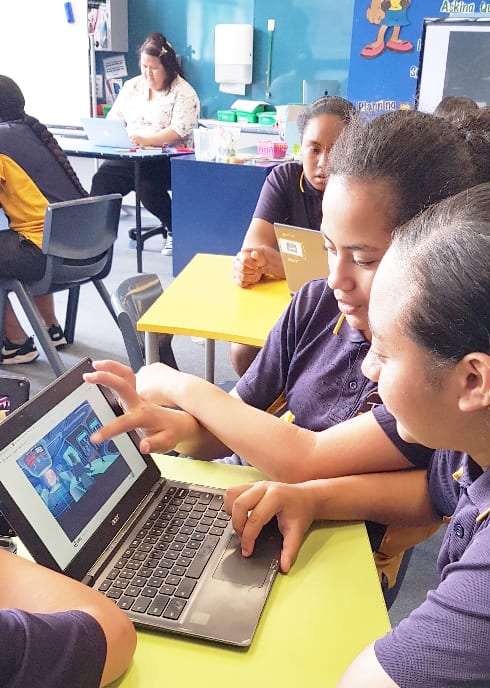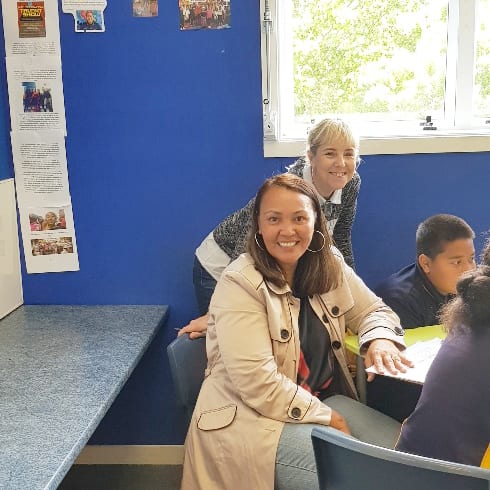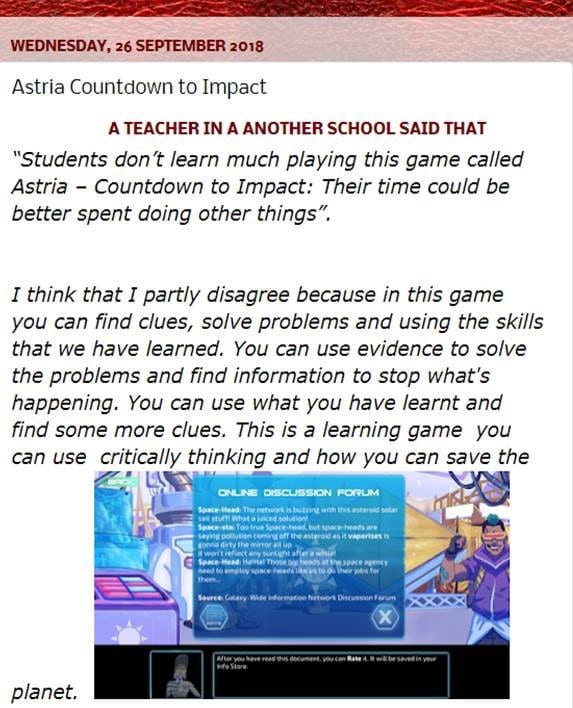
“The planet Astria is doomed to destruction by an approaching asteroid, and you, Alpha Leader, must save it. Only you can engage the help of scientists and world leaders to find a solution to the threat. Your planet needs you!”
The educational game Astria: Countdown to Impact lifted off in Term 4 last year with 4 classrooms at 3 schools taking part in game play. Each of the playing partners became Alpha Leader, reading through documents from both reliable and unreliable sources to fully investigate all possible solutions and save the planet Astria from imminent destruction. With the pretence of a planet under attack, students’ cognitive and social skills were tested and extended by problem solving, goal seeking, planning, decision making, and critical thinking.

The core skill focus of Astria is critical literacy, and the game was in fact developed in response to project profiling data indicating limited classroom opportunities to engage in critical literacy practice. The game provides students with a collaborative game experience in a low risk and highly engaging context, while asking them to identify bias, credibility of source, and whether particular statements can be classed as “facts” or not. In this way, the Astria educational game develops critical thinking, critical literacy, and vocabulary skills for both upper primary and lower secondary students (years 7-10).
Various measures were undertaken including students’ base line skills, skill development and interactions. Firstly, students and teachers completed a game experience questionnaire which asked how often they played games (or used games in the classroom), what sort of games they had played, their educational focus, and whether any of the games offered the opportunity to learn critical literacy competencies. Then, at the beginning of the game play, the students took a test of critical literacy which was embedded in the storyline.
After playing the game in class for one hour, students were required to blog about their experience. Finally, when students resumed play the next day, they completed a post-test of critical literacy which was, again, embedded into the storyline of the game. A small sample of students were also asked to screencast their game play so that researchers could analyse their interactions while in the Astria world.
The Developing in Digital Worlds research team has now began to analyse the game play data, and hopes to feed this back to schools by May this year. The Astria game will be tweaked in accordance with student feedback, and the final version of the game will be released in June.
Check out some of our student blog posts below!


